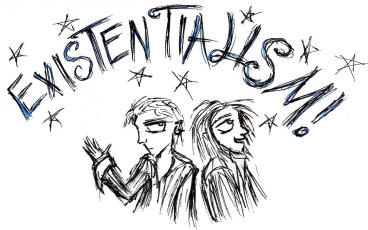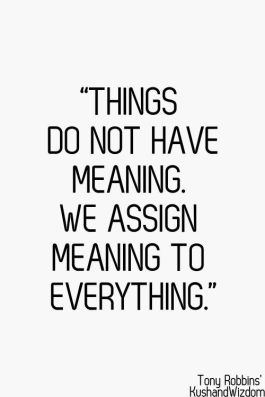Existentialism is a philosophical school of thought that deals with human existence, trying to explain the purpose of a human life. Existentialism, like many other schools of thought, is of course only a speculation and something we made up, take what you read here with a pinch of salt (after all, I don’t know any more about life than you do!)
If I were to try to explain existentialism easily, I’m afraid I’ll lose out on its intricacies, but I’ll give it a shot anyway. Existentialism, at its most fundamental level, says that every person is responsible for defining their own purpose in this world and that we are governed by our free will. Existentialism says that we are not here to ‘find purpose’, but rather to ‘create our reality and purpose’.
It sounds simple, but that’s because I’ve tried to break down roughly a few centuries worth of study and philosophical evolution into four sentences.
Existentialism originated as a school of thought in the 19th-20th Century, and one of its pioneers was Friedrich Nietzsche, a German philosopher (1844-1900). Nietschze among other things was a famed critic of the Church and religion, which ties in with the fact that he was a founding father of existentialism because while religion says that our actions and decisions are up to the behest of God, existentialism says that we get to make our decisions. You may have never heard of him, but I’m sure you’ve heard of his renowned quote, “That which does not kill us makes us stronger.”.
He wanted his work to teach us ‘how to become who we really are’. You can learn more about Nietschze in this video.
For the sake of constraining this blog to existentialism only, I’ve not talked about other existentialists, but you can check out the sources below to get an entire archive of study about its important figures.
Existentialism’s main ideas
Existentialism seems depressing to many people because it seems to talk about the meaningless of life, the absence of a ‘god’ and the loneliness of being a human among other things, but this is only a superficial look at existentialism.
Anxiety and Alienation
“You feel anxiety because you recognize that you and you alone are responsible for your actions. This produces the two-sided feeling of simultaneous dread and exhilaration.” – Source 2
Absurdity
Freedom
Existence precedes essence
Situatedness
Your existence is defined by the time you are born in, it always takes place in a particular context. Your body and its characteristics, your circumstances in a historical world, and your past, all weigh upon freedom.
Conclusion
7 billion people experienced this same day in a different way.Let’s put this in perspective. Break things down.1 billion seconds is roughly 31.7 years.
Therefore, 7 billion seconds is Roughly 221.9 years.
Every second, 222 experienced years have passed.
Every minute, 13,314 experienced years have passed.
Every hour, 798,840 experienced years have passed.
Every day, 19,172,160 experienced years have passed.
Over 19 MILLION YEARS pass in a day.
Let that sink in. – /u/PsychoNerd91
The world is meaningless, there is no God or gods, there are no morals, the universe is not moving towards any higher purpose. All meaning is man-made, so make your own, and make it well. Do not treat life as a way to pass the time until you die. Do not try to “find yourself”. You must make yourself. Choose what you want to find meaningful and then live, create, love, hate, cry, destroy, fight and die for it. Do not let your life and your values and your actions slip easily into any mold, other than that which you create for yourself, and say with conviction, “This is who I make myself”. Do not give in to hope. Remember that nothing you do has any significance beyond that with which you imbue it. Whatever you do, do it for its own sake. When the universe looks on with indifference, laugh, and shout back, “F*ck You!”. Remember, that to fight meaninglessness is futile but fight anyway, despite its futility.
The world may be empty of meaning, but it is a blank canvas on which to paint meanings of your own.
Live deliberately.
You are free.
Further Reading/Sources
- Stanford Encyclopedia of Philosophy (heavily recommended!) https://plato.stanford.edu/entries/existentialism/
- Existentialism for Dummies: http://www.dummies.com/education/philosophy/existentialism-for-dummies-cheat-sheet/
- Internet Encyclopedia of Philosophy: http://www.iep.utm.edu/existent/#H1
- Academy of Ideas – Introduction to Existentialism (VIDEO) https://www.youtube.com/watch?v=ilg7PiDD8yY



